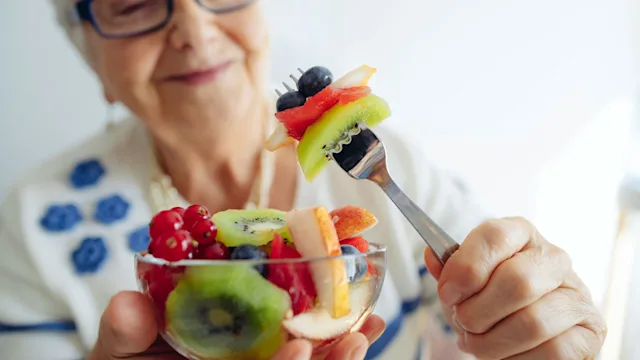Key takeaways:
Caffeine, one of the ingredients in coffee, can interact with several medications. Caffeine may worsen the health condition you’re treating. This includes anxiety, high blood pressure, and diabetes.
Combining caffeine with stimulants, Sudafed (pseudoephedrine), or theophylline (Theo-24) can make you feel jittery and raise your blood pressure. And birth control pills can make caffeine’s effects last longer.
Caffeine can lower how much thyroid hormone medication and vitamins you absorb if they’re combined. And it can raise the levels of some antipsychotic and antidepressant medications, too.
You may not think of caffeine as a drug, but it’s considered the most widely used stimulant across the globe. Many people rely on caffeine’s energy-boosting effects to get through the day. In fact, about 85% of U.S. adults consume some form of caffeine daily.
We know that caffeine can help you think more clearly and combat fatigue. But it can also temporarily raise your blood pressure. So is it safe to drink coffee if you’re taking blood pressure medication? And what about caffeine’s effect on the other medications you take?
1. High blood pressure medications
It’s best to limit your caffeine intake if you’re living with high blood pressure — even if it’s controlled by medication. Coffee and other drinks that contain caffeine don’t directly interact with most blood pressure medications. But caffeine can raise your blood pressure, which can increase your risk of heart-related issues such as a stroke or heart attack.
Keep in mind that in most cases, you won’t have to give up your morning coffee completely. One or two cups is usually OK, even if you have high blood pressure. You can also switch to decaf or “half-caff” coffee, or give caffeine-free tea a try. Your prescriber can help you decide how much and what type of caffeine may be OK based on your personal medical history.
2. Stimulant medications, such as Adderall and phentermine
Stimulant medications are often prescribed for health conditions such as obesity or attention-deficit hyperactivity disorder (ADHD). They help speed up certain functions in the body. But they can also raise your heart rate and blood pressure and cause sleep problems in some cases.
Caffeine is a natural stimulant. So when it’s combined with a stimulant medication, there’s a higher risk of side effects. You may feel restless or jittery. And more severe effects can also happen, such as tremors, severe nausea, and heart problems.
Common stimulants include:
Mixed amphetamine salts (Adderall)
Methylphenidate (Ritalin)
Phentermine (Adipex-P, Lomaira)
Qsymia (phentermine / topiramate)
If you’re prescribed a stimulant medication, talk to your healthcare team about your caffeine intake. They may suggest a lower dose of your prescription to avoid side effects. Or they may prefer that you limit how much caffeine you consume.
Caffeine and blood pressure: What the science says. (Hint: Moderation is best.)
Food-medication interactions: Here are five common culprits to be aware of.
Energy drink risks: Learn why energy drinks can have negative effects on your health.
3. Sudafed
Sudafed (pseudoephedrine) is an over-the-counter (OTC) decongestant that also has stimulant effects on the body. It’s easy to forget that OTC medications also have interactions to consider. But combining caffeine and Sudafed can raise your risk of heart-related side effects. It can also interfere with your sleep, which isn’t helpful when you’re not feeling well.
It’s best to avoid caffeine while taking Sudafed. Spacing out your caffeine intake and Sudafed dose is also an option. For example, you might wait until the effects of your morning coffee wear off (after about 5 hours) before taking a dose of Sudafed.
4. Theophylline
Theophylline (Theo-24) is an older medication used to treat asthma and chronic obstructive pulmonary disease (COPD). Caffeine and theophylline cause similar side effects, so combining them can make you feel jittery and have trouble sleeping. Caffeine can also raise theophylline levels in the body, which makes side effects more likely.
Read more like this
Explore these related articles, suggested for readers like you.
It’s best to limit caffeine while you’re taking theophylline. But talk to your prescriber before making any changes. Your theophylline dose may already take your caffeine consumption into account.
5. Antipsychotics such as olanzapine
Antipsychotics are medications that treat mental health conditions such as schizophrenia and bipolar disorder.
Caffeine can increase the levels of some antipsychotics in the body, which can raise the risk of side effects. This includes medications such as olanzapine (Zyprexa), haloperidol (Haldol), and clozapine (Clozaril).
Your prescriber will likely adjust your antipsychotic medication dosage based on how you respond to the medication. Your daily caffeine intake will play a role in this process. But if you increase or decrease how much caffeine you consume at any point while you’re taking these medications, it could cause a problem. Your medication may become less effective or you may experience more side effects. Let your prescriber know before making any changes in your daily caffeine habits.
6. Anxiety and sleep medications
Since caffeine is a stimulant, it can interfere with the effects of sedative medications that are designed to have the opposite effect. Sedatives are often prescribed for health conditions such as insomnia and anxiety. Examples include medications such as alprazolam (Xanax) and zolpidem (Ambien).
Like with blood pressure medications, this isn’t a direct drug interaction. Instead, caffeine can make it harder for these medications to work because it worsens the symptoms of the health condition you’re treating.
If you take medication to help manage your anxiety levels, it’s best to keep caffeine to a minimum. If you’re taking medication to help you sleep, avoid caffeine at least 6 hours before bedtime.
7. Oral contraceptive pills
Oral contraceptive pills can slow down how fast your body breaks down caffeine. Studies show that caffeine’s effects can last twice as long as usual if you’re taking a hormonal contraceptive pill.
So when you’re first starting an oral contraceptive, you may want to lower your caffeine intake until you know how this interaction affects you. And if you’re already taking birth control pills, it may be a good idea to avoid caffeine other than in the morning, since it can linger in your body and interfere with sleep if you consume it later in the day.
8. Diabetes medications
Caffeine can reduce your body’s sensitivity to insulin. It can also increase blood glucose (sugar) levels after meals, especially in those living with Type 2 diabetes. These changes can make it harder to control your blood glucose levels. And it can interfere with the effectiveness of your diabetes medications.
It’s likely fine to have a cup or two of coffee if you have diabetes. But avoid sugar and creamers if possible and keep an eye on your blood glucose levels. Energy drinks are more risky, since they contain large amounts of caffeine along with sugar and other ingredients that can affect your blood glucose.
Your prescriber can help you determine how much caffeine is safe for you and can help give you tips to reduce your caffeine intake if needed.
9. Thyroid hormone medications such as levothyroxine
Thyroid hormone medications are used to treat hypothyroidism (low thyroid hormone levels). Thyroid medications, such as levothyroxine (Synthroid), can interact with caffeine — but more specifically, with coffee.
Coffee can lower the amount of thyroid medication that’s absorbed into the body. This can make the medication less effective for you. It’s recommended to wait at least 60 minutes between drinking coffee and taking thyroid hormone medications to avoid this interaction.
10. Tricyclic antidepressants such as amitriptyline
Tricyclic antidepressants (TCAs) treat mental health conditions such as depression and anxiety. Caffeine can increase the levels of some TCAs, such as amitriptyline and imipramine (Tofranil). This raises your risk of side effects, including sleepiness, dizziness, and constipation.
If you’re taking a TCA and it’s working well for you, you likely don’t need to worry about your caffeine intake. But if you make a major change in how much or how little caffeine you consume, it could affect how well your medication works. Check in with your healthcare team if you’re considering increasing or reducing your daily amount of caffeine while taking a TCA.
Keep in mind: As mentioned, although caffeine doesn’t seem to cause anxiety, it can worsen existing anxiety symptoms. So if you’re taking a TCA to help with anxiety, limiting caffeine could be helpful in more ways than one.
11. Supplements
Several OTC supplements can also interact with caffeine.
Supplements with stimulant effects can raise the risk of heart problems if you combine them with caffeine. Examples include:
Guarana
Ephedra
Geranium
Ma huang
Yohimbe
You should limit your caffeine intake if you’re taking a supplement that contains a stimulant. Check with your pharmacist or prescriber if you’re unsure about the ingredients.
Caffeine may also prevent you from absorbing certain vitamins and minerals, such as:
Vitamin C
If you’re a morning coffee drinker, taking your vitamins in the evening can help ensure you absorb them properly.
The bottom line
Caffeine is a common substance found in coffee, tea, and energy drinks. It can raise your blood pressure and make it harder for blood pressure medications to work.
Caffeine can also enhance the effects of stimulants, Sudafed (pseudoephedrine), and theophylline (Theo-24). And it can make it harder for diabetes and anxiety medications to work. That’s because it may worsen the health condition these medications treat. Oral contraceptive pills can make caffeine’s effects last longer.
Caffeine can lower the absorption of thyroid hormone medications and certain vitamins and minerals if they’re combined. It can also raise the levels of some antipsychotic and antidepressant medications in the body. Changes in how much caffeine you consume could make a difference in how these medications work for you. Your healthcare team can help you decide how much caffeine is safe for you and navigate any dietary changes you’re considering.

Why trust our experts?



References
Belayneh, A., et al. (2020). The effect of coffee on pharmacokinetic properties of drugs: A review. BioMed Research International.
Brune, M. (1989). Iron absorption and phenolic compounds: importance of different phenolic structures. European Journal of Clinical Nutrition.
de Leon, J. (2004). Psychopharmacology: Atypical antipsychotic dosing: The effect of smoking and caffeine. Psychiatric Services.
Evans, J., et al. (2023). Caffeine. StatPearls.
Hladun, O., et al. (2021). Interaction of energy drinks with prescription medication and drugs of abuse. Pharmaceutics.
Institute of Medicine (US) Committee on Military Nutrition Research. (2001). Pharmacology of caffeine. Caffeine for the Sustainment of Mental Task Performance: Formulations for Military Operations.
Jilani, T. N., et al. (2023). Theophylline. StatPearls.
Kujawska, A., et al. (2021). Coffee consumption and blood pressure: Results of the second wave of the Cognition of Older People, Education, Recreational Activities, Nutrition, Comorbidities, and Functional Capacity Studies (COPERNICUS). Nutrients.
Lane, J. D., et al. (2008). Caffeine increases ambulatory glucose and postprandial responses in coffee drinkers with type 2 diabetes. Diabetes Care.
Mitchell, D. C., et al. (2014). Beverage caffeine intakes in the U.S. Food and Chemical Toxicology.
Moraczewski, J., et al. (2023). Tricyclic antidepressants. StatPearls.
Operation Supplement Safety. (2022). Stimulants in dietary supplements.
Sato, J., et al. (1993). Influence of usual intake of dietary caffeine on single-dose kinetics of theophylline in healthy human subjects. European Journal of Clinical Pharmacology.
Saygili, S. (2024). Effects of coffee on gut microbiotica and bowel functions in health and diseases: a literature review. Nutrients.
Temple, J. L., et al. (2017). The safety of ingested caffeine: A comprehensive review. Frontiers in Psychiatry.
Yartsev, A., et al. (2021). Caffeine-clozapine interaction associated with severe toxicity and multiorgan system failure: A case report. BMC Psychiatry.
Wiesner, A. et al. (2021). Levothyroxine interactions with food and dietary supplements — A systematic review. Pharmaceuticals.


















